Stem Cell
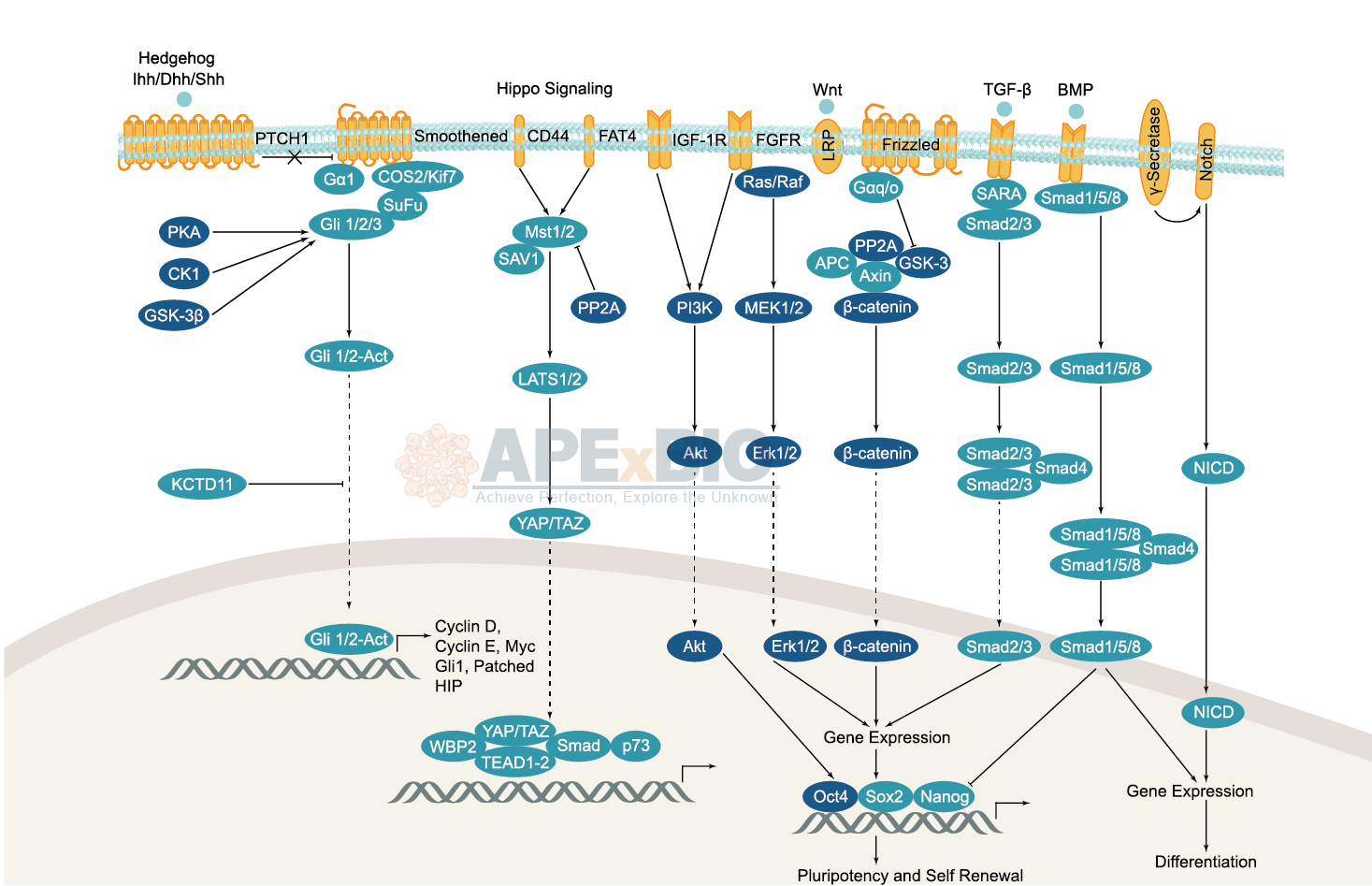
In ESC, BMP/TGF-β signaling pathway plays a key role in maintaining pluripotency and self-renewal. It signals through Smad proteins, and the FGF signaling pathway, which activates the MAPK and Akt pathways. The Wnt signaling pathway also promotes pluripotency. OCT-4, SOX2, and NANOG are three main transcription factors that are expressed and activated by these pathways. Induced pluripotent stem cells (iPSC) are pluripotent cells that can be generated from differentiated cells with forced expression of specific reprogramming factors. Both ESC and iPSC can be induced to develop into distinct cell types that associated with three primary germ layers: ectoderm, mesoderm and endoderm. Signaling pathways that control the development of these cell lineages, including BMP/TGF-β, Notch, Wnt/β-catenin, Hedgehog and Hippo pathways, which regulate cell division, growth and differentiation. Defects in stem cell signaling are related to developmental disorders and cancer.
-
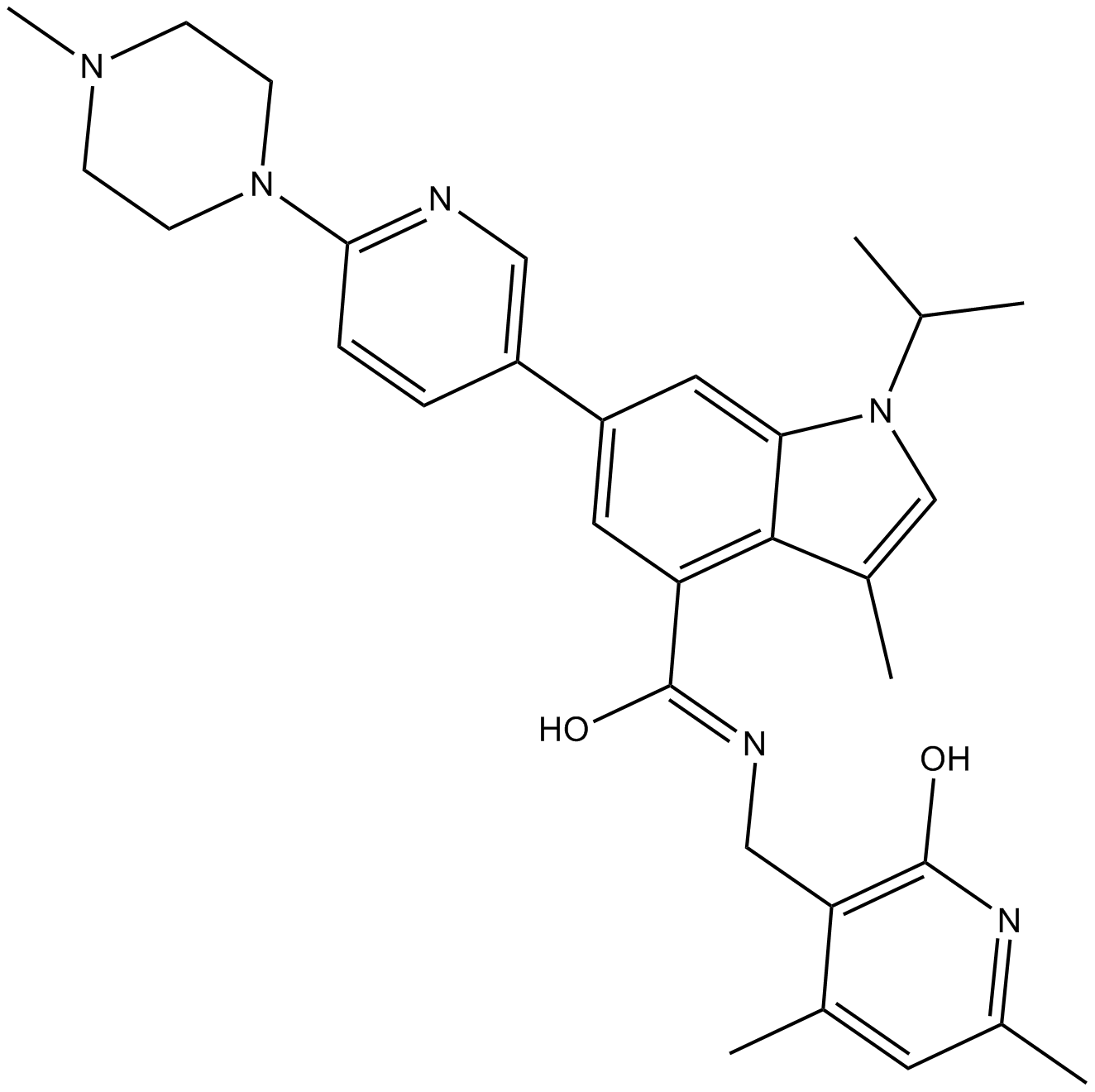 B5833 GSK5032 CitationSummary: EZH2 inhibitor
B5833 GSK5032 CitationSummary: EZH2 inhibitor -
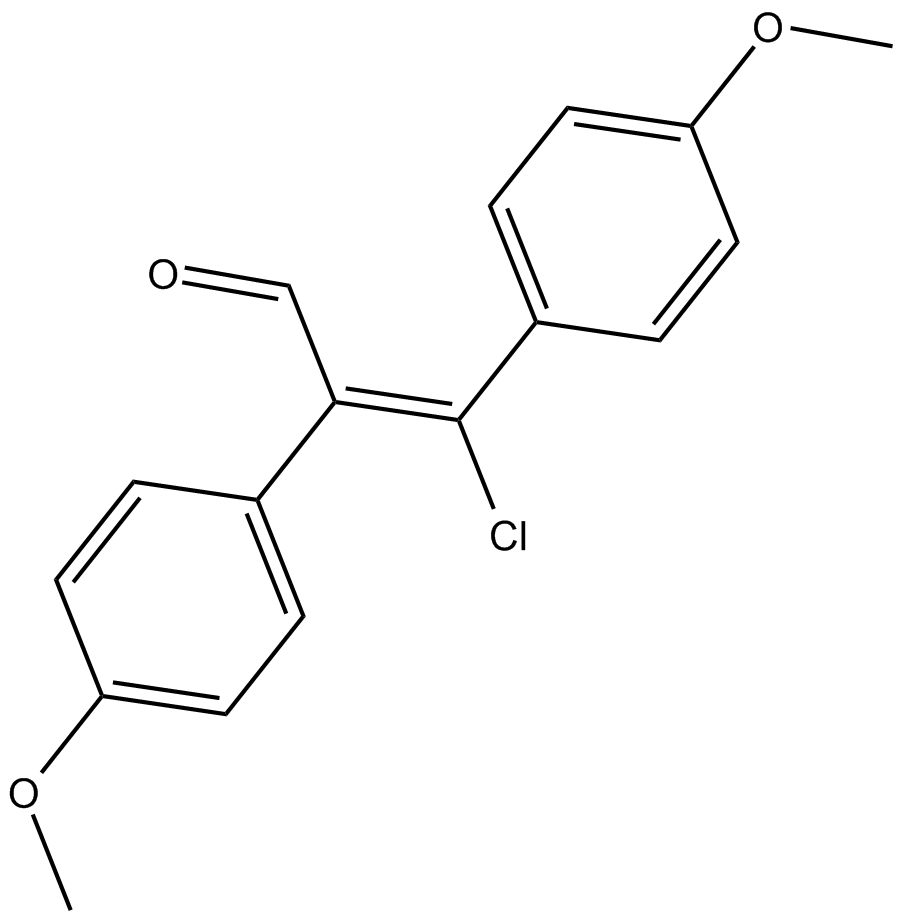 B5977 WindorphenSummary: Wnt inhibitor
B5977 WindorphenSummary: Wnt inhibitor -
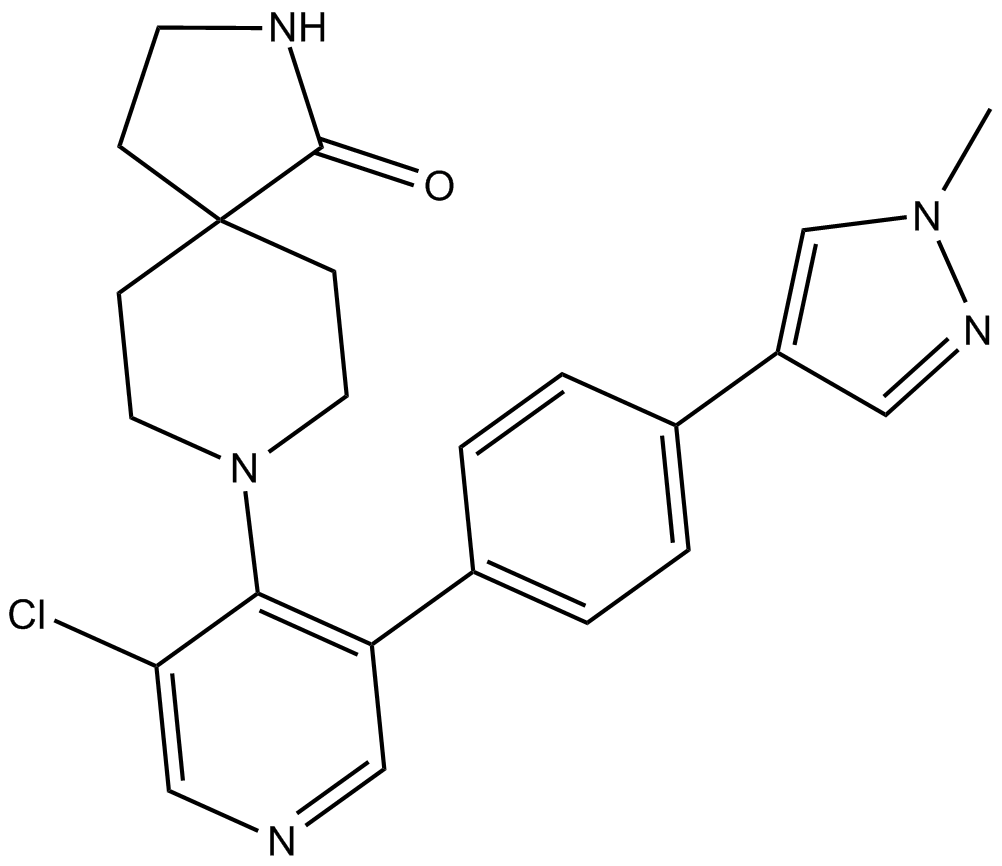 B5979 CCT251545Summary: Orally bioavailable and potent WNT signaling inhibitor
B5979 CCT251545Summary: Orally bioavailable and potent WNT signaling inhibitor -
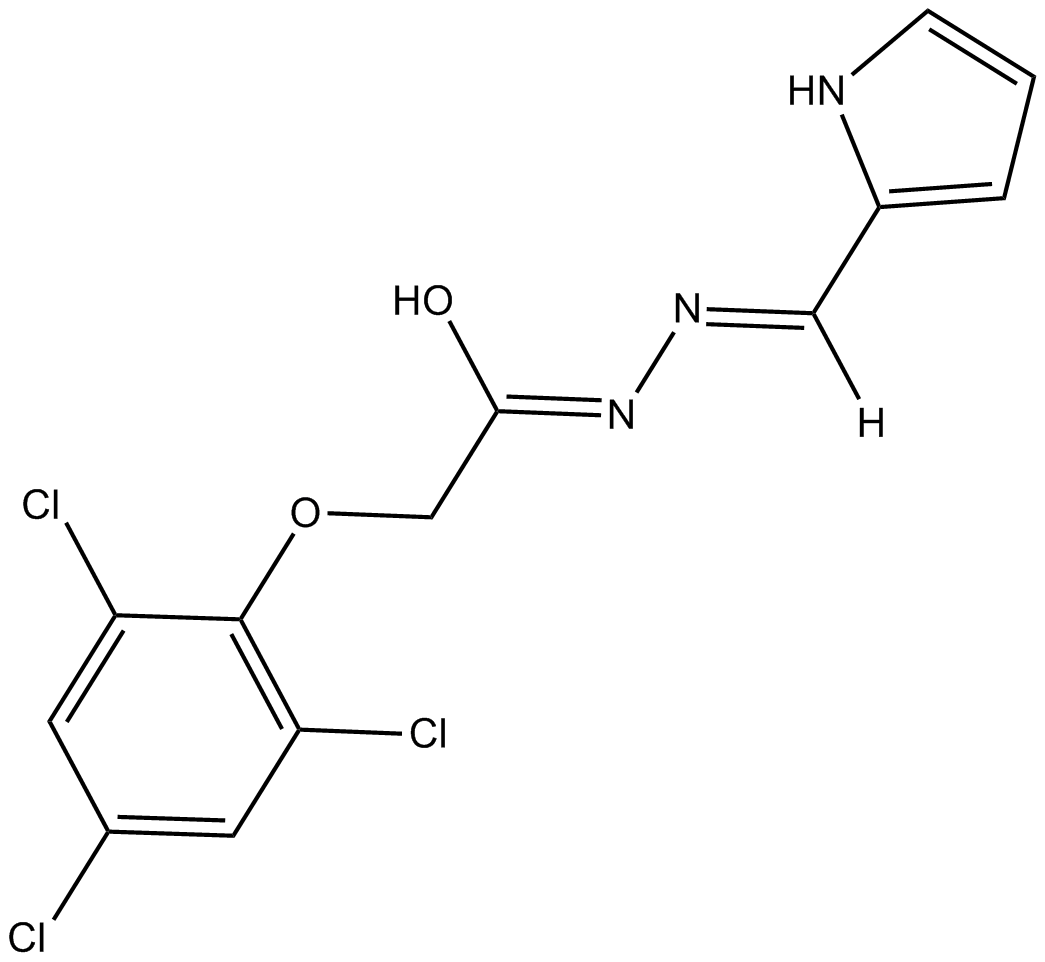 A8719 ML 239Summary: inhibitor of the breast cancer stem cells
A8719 ML 239Summary: inhibitor of the breast cancer stem cells -
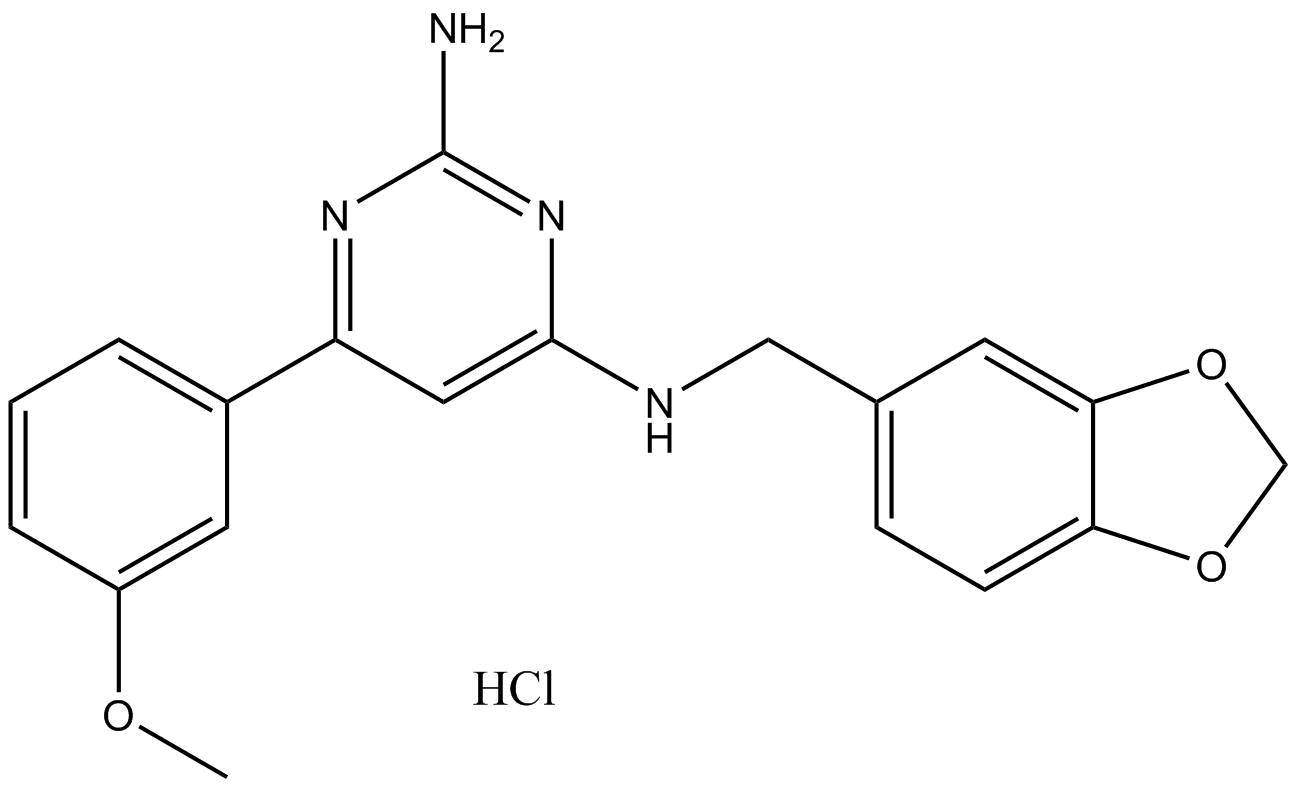 B6059 Wnt agonist 11 CitationSummary: agonist of Wnt signaling pathway
B6059 Wnt agonist 11 CitationSummary: agonist of Wnt signaling pathway -
 K1021 Mouse iPSC Chemical Reprogramming Cocktails Kit plusSummary: Chemical reprogramming from somatic cells to pluripotent stem cells
K1021 Mouse iPSC Chemical Reprogramming Cocktails Kit plusSummary: Chemical reprogramming from somatic cells to pluripotent stem cells -
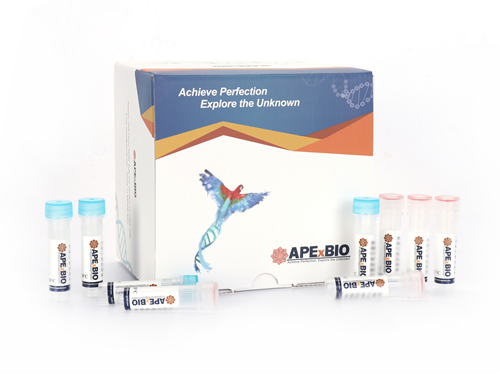 K1022 Mouse iPSC Chemical Reprogramming Cocktails KitSummary: Chemical reprogramming from somatic cells to pluripotent stem cells.
K1022 Mouse iPSC Chemical Reprogramming Cocktails KitSummary: Chemical reprogramming from somatic cells to pluripotent stem cells. -
 B6108 IC261Summary: CK1 inhibitor
B6108 IC261Summary: CK1 inhibitor -
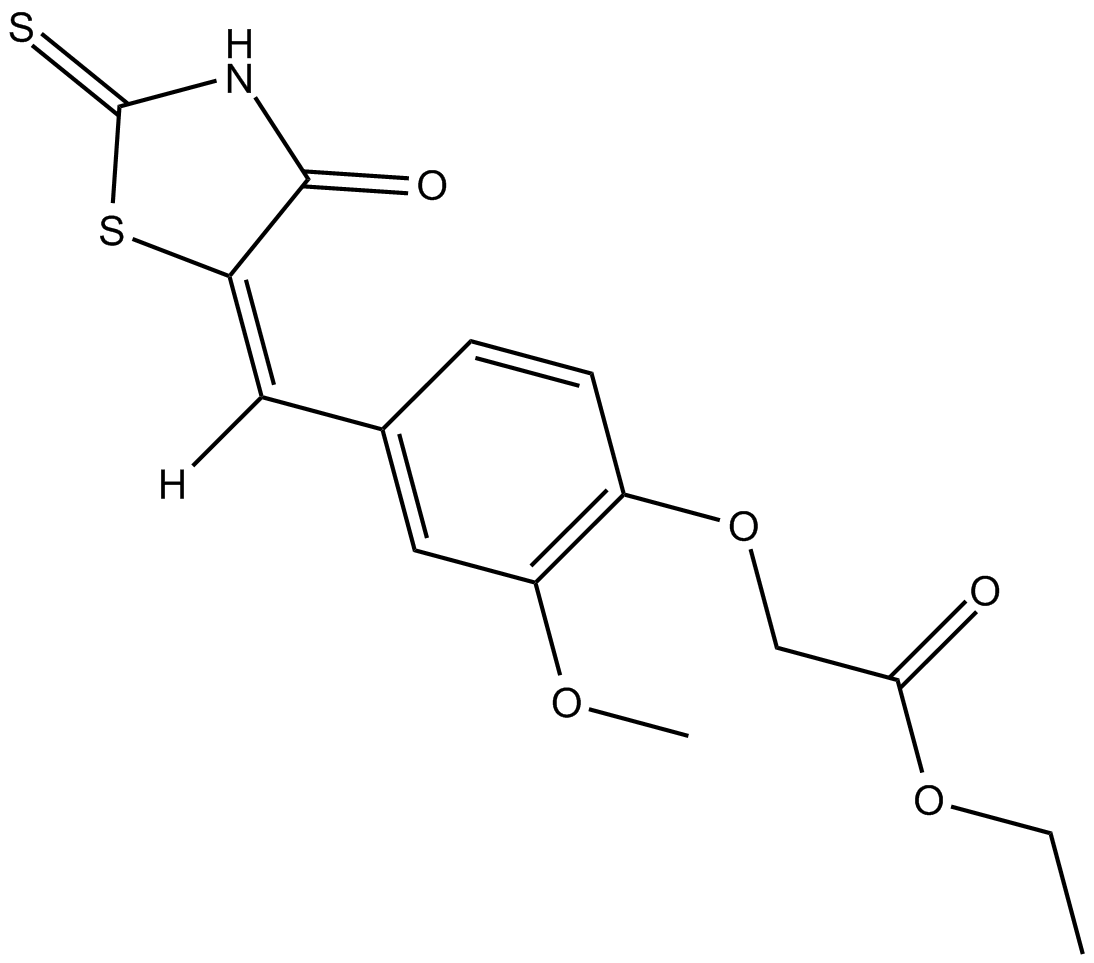 B6110 IMR-1Summary: Notch pathway inhibitor
B6110 IMR-1Summary: Notch pathway inhibitor -
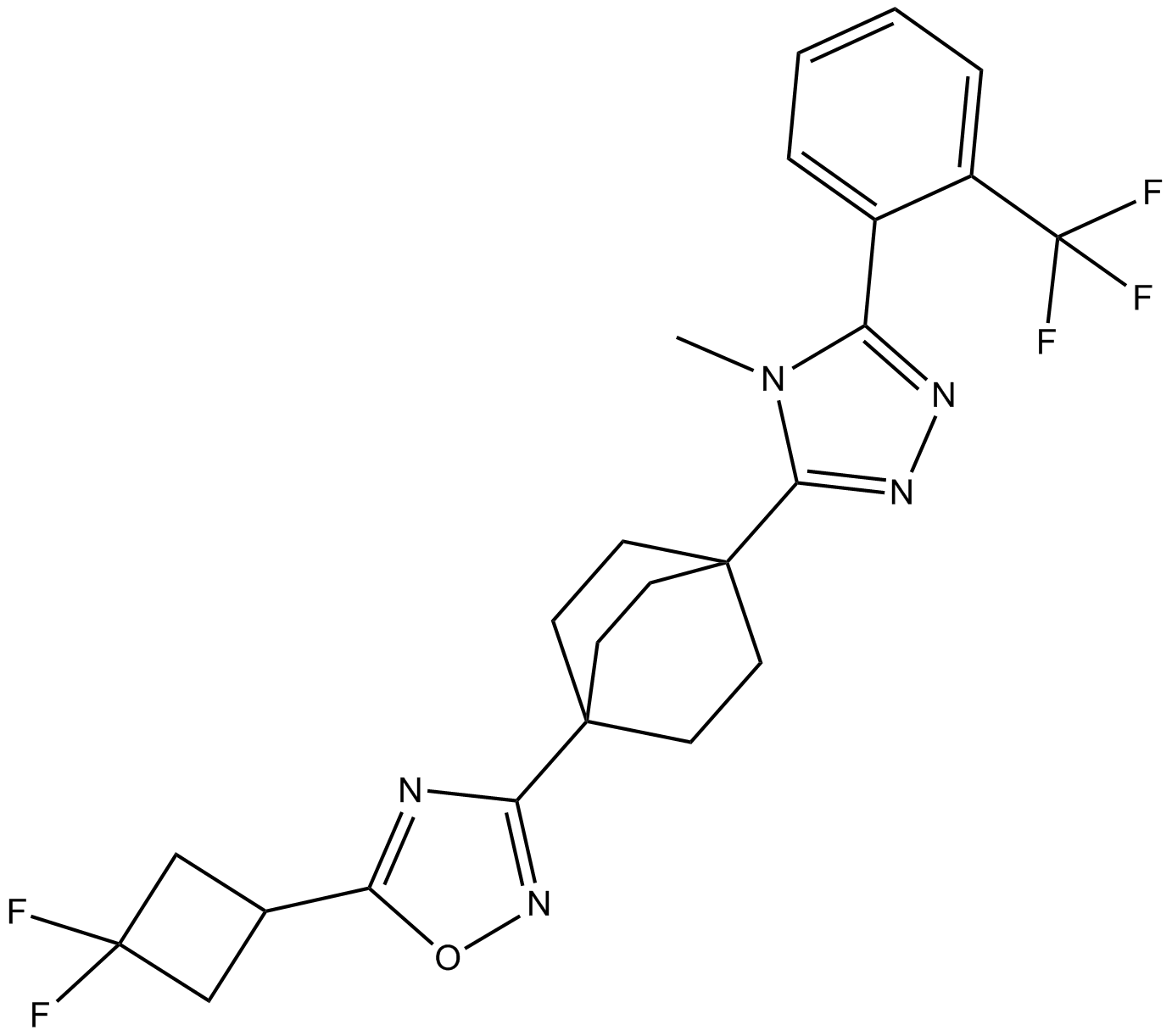 B7803 MK-4101Summary: Hedgehog (Hh) signaling pathway inhibitor
B7803 MK-4101Summary: Hedgehog (Hh) signaling pathway inhibitor

